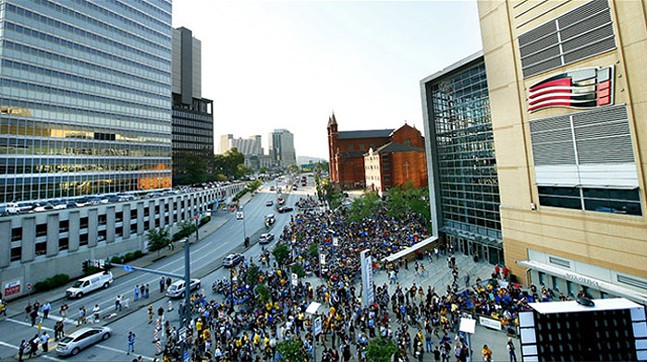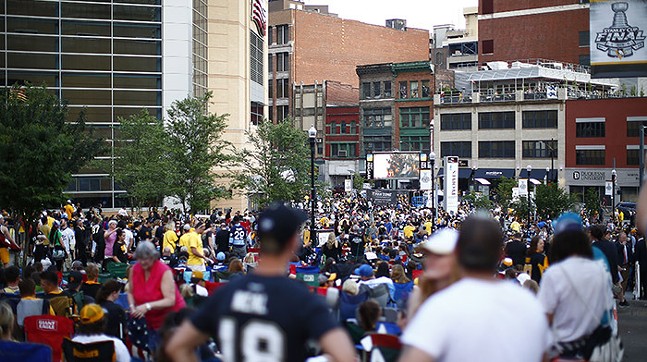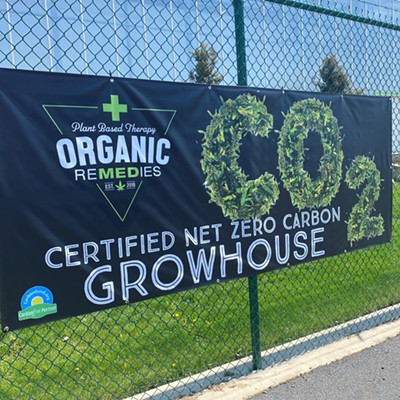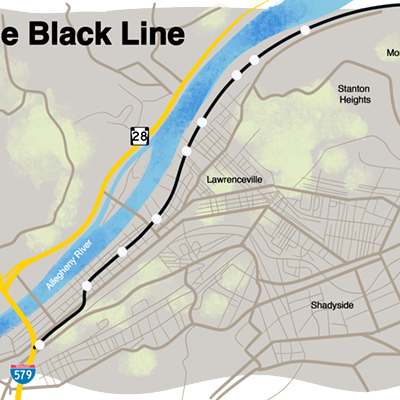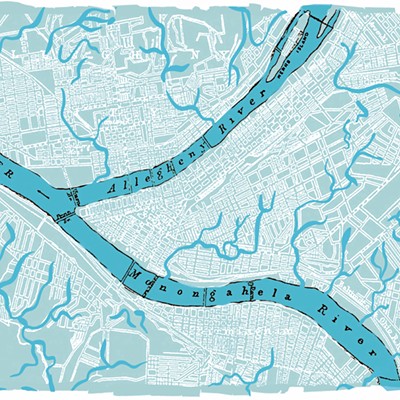The sale of the team to Fenway Sports Group, a Boston-based firm run by billionaire John Henry, took many Pittsburghers by surprise. It led to a fair amount of uncertainty about the Penguins and how Pittsburgh’s hockey team would be managed. But the uncertainty wasn’t just concentrated on the ice. Henry is a well-known developer, and the Penguins have been in a long process of redeveloping the former Civic Arena site the team owns. There is also likely the future redevelopment on the other side of PPG Paints Arena, as Uptown is set to get many infrastructure improvements, thanks to a coming Bus Rapid Transit project.
The area around Pittsburgh’s hockey arena and performance venue has already seen some development changes, and it’s set to get a lot more in the coming years. And this begs some questions: Who is John Henry? And what can his extensive background in development tell Pittsburghers about what might be coming to the area around PPG Paints Arena.
Finance background and foray into sports ownership
Henry, 72, got his start in futures trading in the 1970s and then started the John W. Henry & Company, a financial management firm, in 1981. His firm was fast growing and successful and, over the course of just several years, Henry amassed a large fortune.In 1989, he purchased a minor league baseball team in Tucson, Ariz., and followed that up with involvement in several deals across several sports. In 1991, he purchased a small interest in the New York Yankees, and in 1999, he became the sole owner of the Florida Marlins (now called the Miami Marlins).
He sold the Marlins in 2002, and then purchased the Boston Red Sox through his newly formed Fenway Sports Group. FSG has owned the Red Sox ever since, and in 2010, it also purchased England’s Liverpool Football Club.
On Nov. 29, FSG entered an agreement to purchase the Penguins. Lemieux and Ron Burkle will still be part of the ownership team of the Penguins, but not majority owners. The leadership and management team of the Penguins — including the CEO, the COO, President of Hockey Operations, General Manager, and the head coach — will remain the same. The deal is expected to be finalized by the end of this year.
Henry’s role in development around Fenway Park
Almost as soon as Henry and Fenway Sports Group purchased the Red Sox, the neighborhood that surrounds Fenway Park started to see significant development.John E. Rosenthal, president of Boston-development group Meredith Management Corp., told the Chicago Tribune in 2017 that FSG embraced the idea of encouraging housing, restaurant, shopping, and entertainment development instead of blocking development that could be seen as entertainment competition. Rosenthal said that the change “turned a neighborhood with surface parking lots and unused land into a great, real neighborhood. It has shops and great restaurants and places to live.”
But that boom in development has also come at a cost, according to some Bostonians. The area around Fenway Park has gentrified, as confirmed by a report in Governing magazine that showed the Fenway neighborhood saw a significant increase in home values and influx of residents with college degrees.
Northeastern University journalism professor Dan Kennedy wrote a book on Henry and spoke to WESA last month about Henry’s role in the gentrification of Fenway.
“Henry upgraded the area around Fenway Park to his own enrichment in many respects, but [he] really sparked this enormous renaissance of economic activity around Fenway Park,” said Kennedy. “ … Unfortunately, it's become a place where working-class people can no longer afford to live. And the downside of what's happened to the area around Fenway Park is that it's become kind of a playground for rich people. But, you know, there is a downside when you gentrify and develop an area that had been less affluent at one time, and that is the people who used to live there can no longer afford to live there."
Housing prices have increased dramatically since 2000, and the demographics of Fenway have changed, but not all neighborhood fears have come to fruition.
In the 2017 article in the Chicago Tribune, one neighborhood activist was concerned that the rapid change of the neighborhood would mean a popular and affordable burger joint would be forced to close, but that burger restaurant is still open.
What this means for Pittsburgh
The land immediately adjacent to PPG Paints Arena in Pittsburgh is currently large surface parking lots, but there is a large-scale plan to develop those sites. The Penguins are managing the redevelopment project and signed a community benefits agreement in 2014 to ensure the deal includes affordable housing, workforce development, minority and women-owned business participation, and important cultural site preservation.Last month, the Penguins were asked by PublicSource if the sale to FSG would have an impact on the Lower Hill District development plans, and Penguins COO Kevin Acklin said any sale “would not in any way affect the Penguins’ commitment to the Lower Hill redevelopment effort.”
Preliminary plans for the Lower Hill redevelopment include a new tower to house the headquarters of First National Bank. In all, the Lower Hill project is expected to include about 1,200 housing units, a live music venue, a food hall, nearly 200,000 square feet of retail, a hotel, and more than 800,000 square feet of office space.
But anxieties about what could change under new ownership remain. Last month, leaders of the Hill Community Development Corporation held a meeting and called on leaders to ensure the new ownership team is on board with redevelopment plans for the Lower Hill, which have been a years-long community process.
“We need to make sure the new ownership group understands the commitment that comes with that ownership,” said Hill CDC President Marimba Milliones during the meeting.
Regardless of ownership, the pandemic has already altered some development plans near PPG. Punch Bowl Social, a large restaurant, bar, and entertainment center, was announced as the first tenant of the Lower Hill project in 2019, but the company ended up filing for bankruptcy during 2020 due to the pandemic. On the other side of PPG Paints Arena, there are two large restaurant spaces — formerly occupied by TGI Fridays and Bufords — near the arena on the Uptown side that are currently looking for new tenants.
Uptown is set to get a major infrastructure upgrade, thanks to the construction of the Bus Rapid Transit project between Downtown and Oakland. Forbes and Fifth avenues in Uptown are set to get streetscape upgrades, including improved bus stations, bus-only lanes, bike infrastructure, and more. Homes in Uptown are already being marketed as having a close proximity to the BRT.
The BRT is set to be completed by 2022 and, along with an expansion plan for UPMC Mercy hospital, Uptown, which is home to a high percentage of vacant properties, could be set up for huge development changes.
The UPMC expansion includes a community benefit agreement with promises of affordable housing, which could combat gentrification anxieties, but the neighborhood is also home to hundreds of properties owned by speculators that are likely waiting for an opportunity to cash out.
And if those hundreds of properties aren’t seeking zoning changes from the city government, local leaders don't have much leverage to ensure there are adequate percentages of affordable housing to ensure the neighborhood remains equitable.
Without control over these specific properties, Pittsburgh elected officials would need to enact city laws like inclusionary zoning to ensure Uptown includes certain percentages of affordable housing if the neighborhood sees a development boom. Pittsburgh Mayor-elect Ed Gainey campaigned on a citywide inclusionary zoning policy earlier this year. He takes office in 2022.

